Publications
Articles, publications, books, tools and multimedia features from the U.S. Institute of Peace provide the latest news, analysis, research findings, practitioner guides and reports, all related to the conflict zones and issues that are at the center of the Institute’s work to prevent and reduce violent conflict.
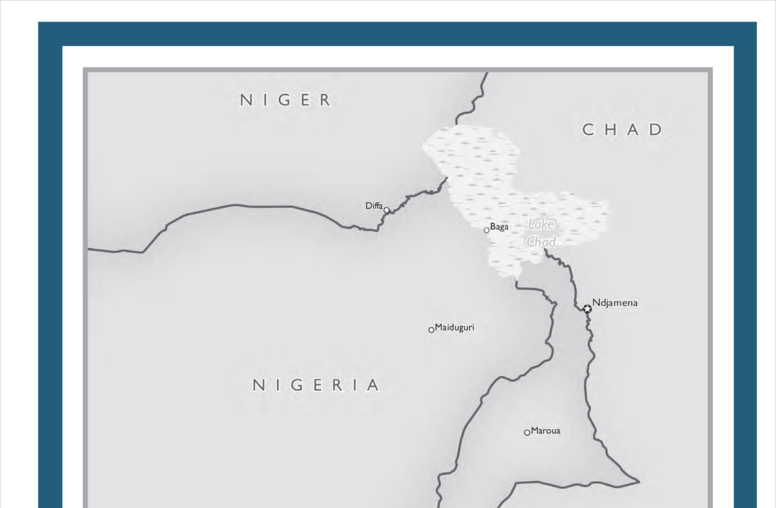
Breaking Boko Haram and Ramping Up Recovery: US-Lake Chad Region 2013-2016
This series of case studies—Burma (2009-2015), Jordan (2011-2016), and the Lake Chad Region (2013-2016)—document efforts and draw lessons from where US government leaders believe deepening crises were staved off through collaborative inter-agency engagement. Part of USIP’s “3D Learning from Complex Crises” project, the cases provide programmatic and operational lessons from complex operating environments. These lessons support systemic integrated approaches to complex crises and will better equip individuals to share objectives when working in inter-agency environments.
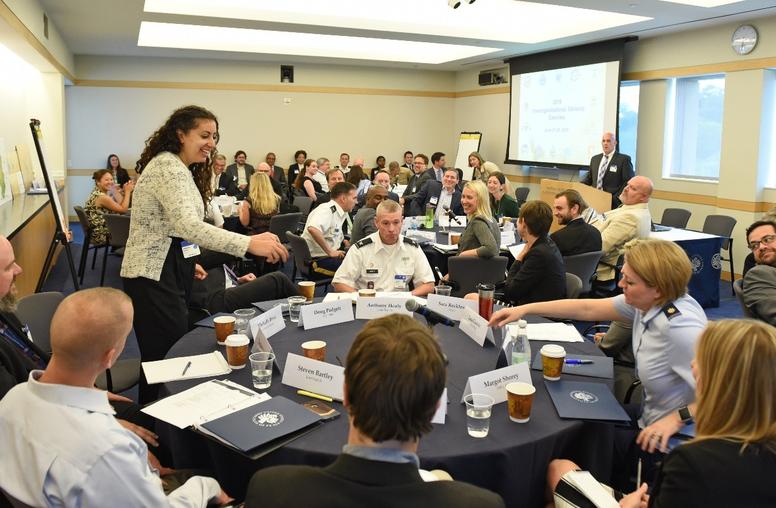
Lake Chad Exercise Demonstrates New Civilian-Military Approach
A group of senior U.S. military and civilian leaders recently agreed to find ways to work together more effectively to counter violent extremism in the volatile Lake Chad Basin of Africa, a region reeling from the casualties and destruction wrought for years by terrorist groups such as Boko Haram. The agreement emerged from a new exercise model...
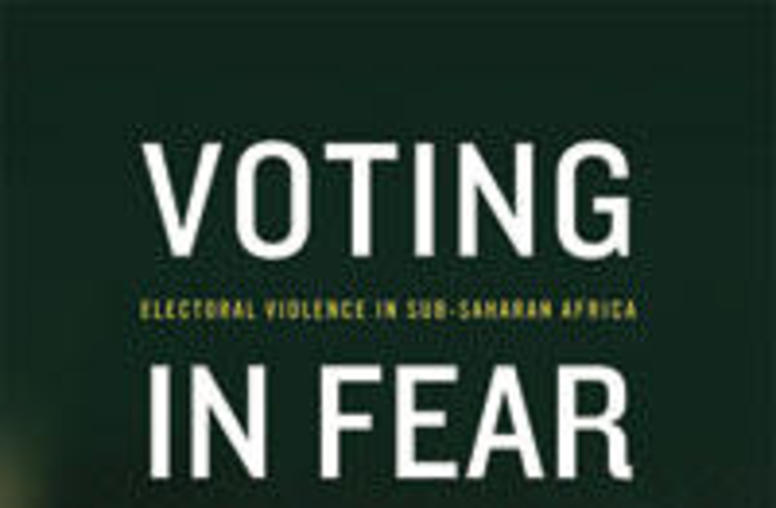
Voting in Fear
In Voting in Fear, nine contributors offer pioneering work on the scope and nature of electoral violence in Africa; investigate the forms electoral violence takes; and analyze the factors that precipitate, reduce, and prevent violence. The book breaks new ground with findings from the only known dataset of electoral violence in sub-Saharan Africa, spanning 1990 to 2008. Specific case studies of electoral violence in countries such as Ghana, Kenya, and Nigeria provide the context to further un...
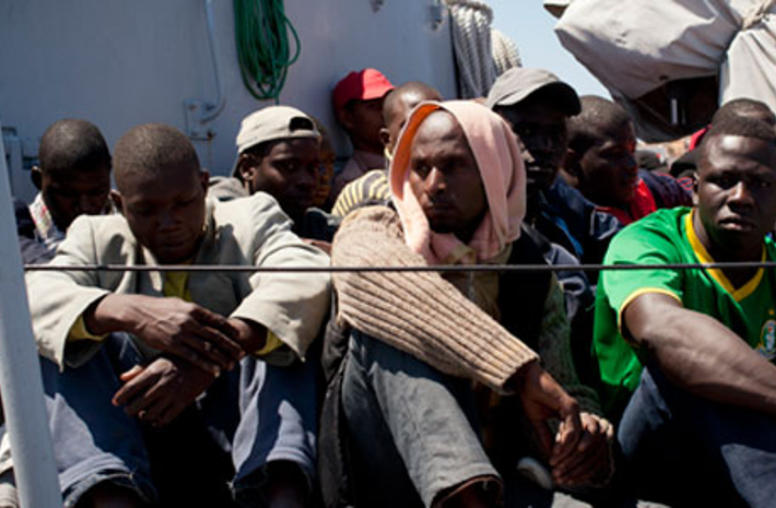
Truth Commission Digital Collection
The United States Institute of Peace’s Truth Commissions Digital Collection is part of the Margarita S. Studemeister Digital Library in International Conflict Management. The collection contains profiles of truth commissions and substantive bodies of inquiry from nations worldwide - offering general background information on the composition of each body, links to the official legislative texts establishing such commissions, and each commission's final reports and findings.
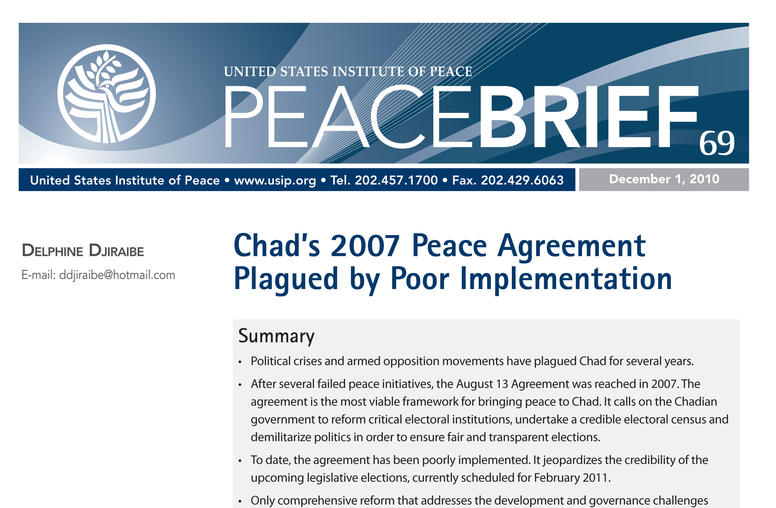
Chad’s 2007 Peace Agreement Plagued by Poor Implementation
Summary Political crises and armed opposition movements have plagued Chad for several years. After several failed peace initiatives, the August 13 Agreement was reached in 2007. The agreement is the most viable framework for bringing peace to Chad. It calls on the Chadian government to reform critical electoral institutions, undertake a credible electoral census and demilitarize politics in order to ensure fair and transparent elections. To date, the agreement has been poorly implem...
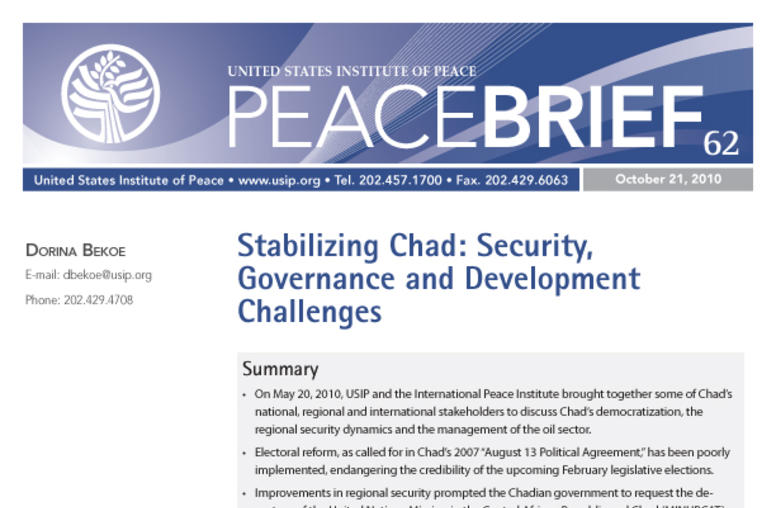
Stabilizing Chad: Security, Governance and Development Challenges
This Peace Brief summarizes some of the achievements and challenges facing Chad’s democratization, peacebuilding, and development.
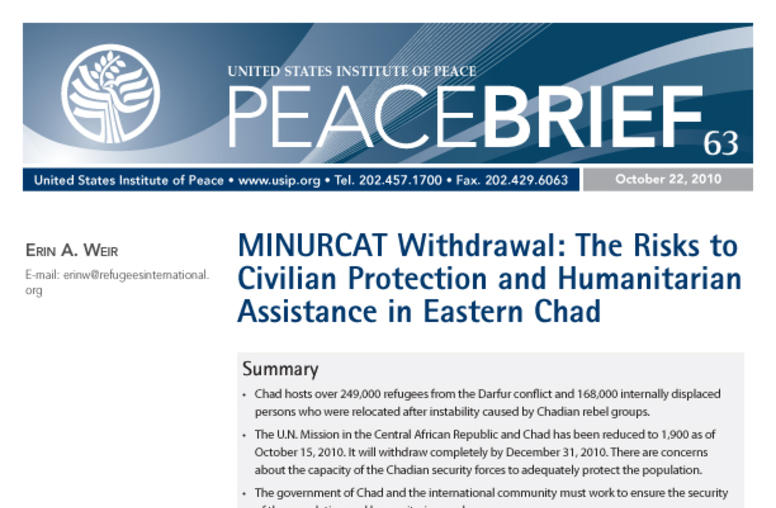
MINURCAT Withdrawal: The Risks to Civilian Protection and Humanitarian Assistance in Eastern Chad
This peace brief describes the security challenges facing eastern Chad and the pending withdrawal of the United Nations Mission in the Central African Republic and Chad.
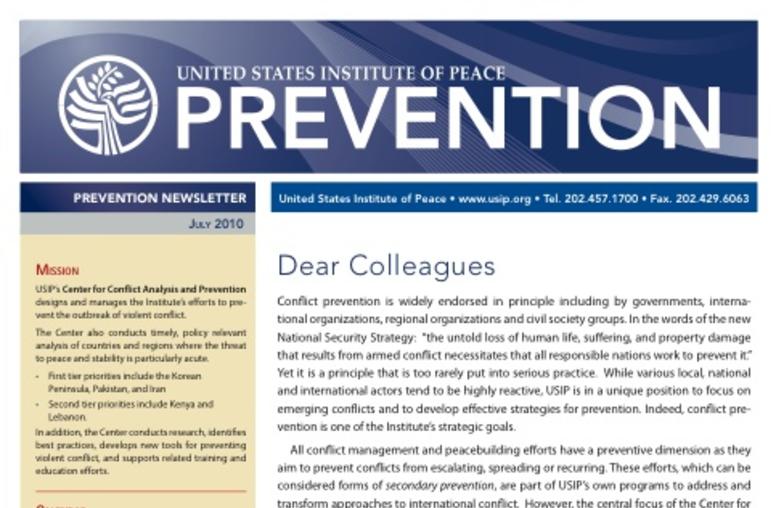
USIP Prevention Newsletter - September 2010
The bimonthly Prevention Newsletter provides highlights of CAP's conceptual work, its region specific work aimed at helping to prevent conflicts in Africa, the Middle East, South and Northeast Asia, and the special projects on genocide prevention and nonproliferation. It also provides Over the Horizon thinking on trends in different regions, as well as CAP events, working groups and publications.
Managing Political Transitions in Africa
Political transitions have often served as triggers of violence. This initiative aims to increase the capacity of key stakeholders to identify these triggers during political transitions, to build positive relationships among civil society, policymakers, and regional and international organizations, and to contribute to the academic and policy literature on peaceful political transitions in Africa.
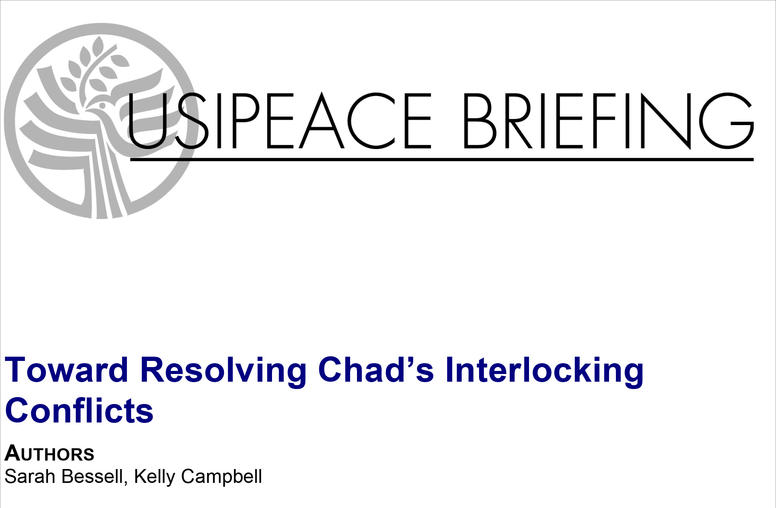
Toward Resolving Chad’s Interlocking Conflicts
The fragility of the Chadian government, as well as the fragmentation among Chadian civil society, political parties, and rebel movements, poses significant challenges that Chadian civil society, regional governments, African institutions and the international community must address with a coordinated strategy. Although the situation in the country is often examined through the lens of the Darfur crisis, several internal factors drive the instability in Chad and its regional actions.